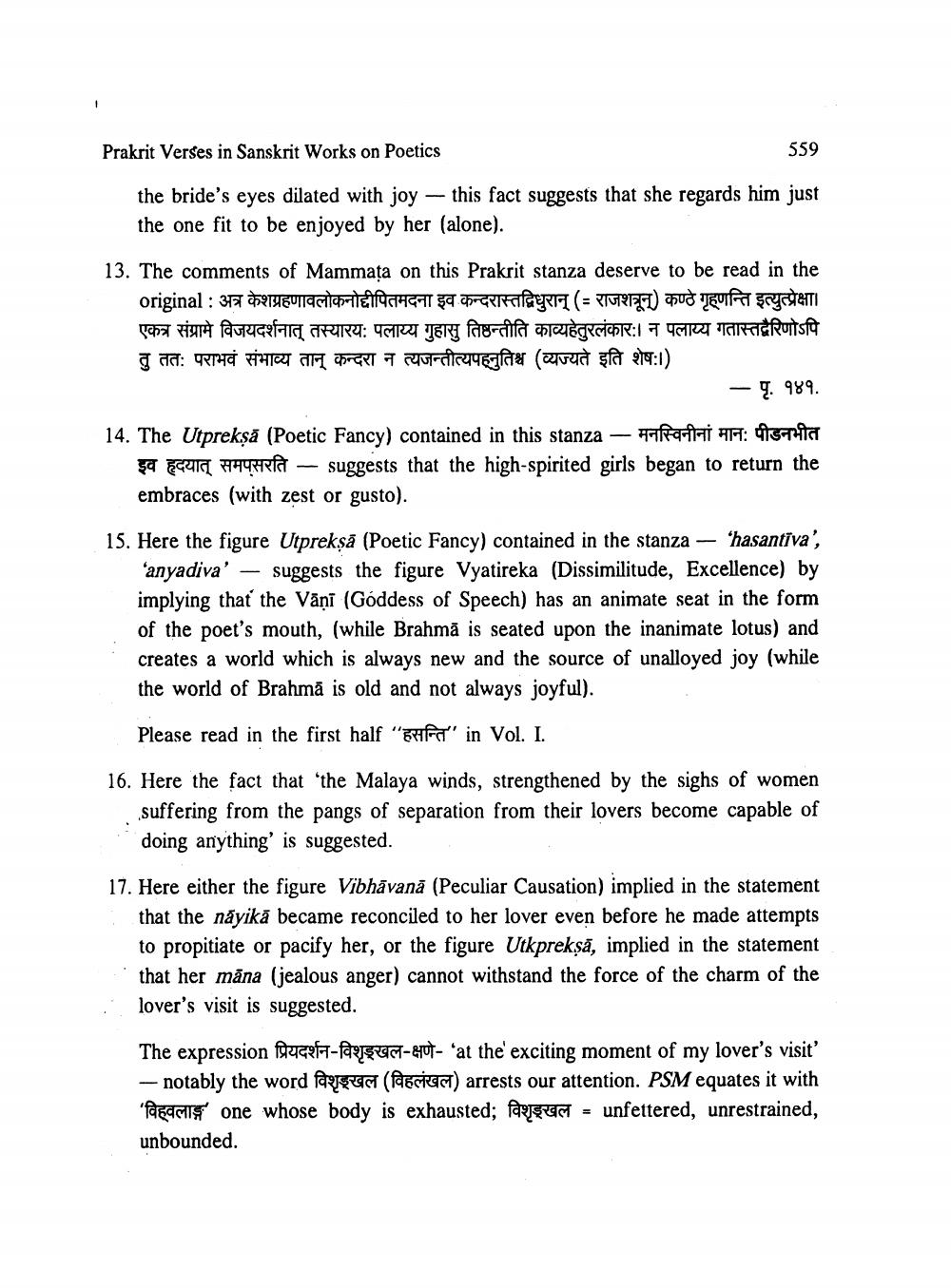________________
Prakrit Verses in Sanskrit Works on Poetics
559
the bride's eyes dilated with joy - this fact suggests that she regards him just the one fit to be enjoyed by her (alone).
13. The comments of Mammata on this Prakrit stanza deserve to be read in the
original : अत्र केशग्रहणावलोकनोद्दीपितमदना इव कन्दरास्तद्विधुरान् (= राजशत्रून्) कण्ठे गृह्णन्ति इत्युत्प्रेक्षा। एकत्र संग्रामे विजयदर्शनात् तस्यारय: पलाय्य गुहासु तिष्ठन्तीति काव्यहेतुरलंकार:। न पलाय्य गतास्तद्वैरिणोऽपि तु तत: पराभवं संभाव्य तान् कन्दरा न त्यजन्तीत्यपहनुतिश्च (व्यज्यते इति शेषः।)
– 9. 989.
14. The Utpreksă (Poetic Fancy) contained in this stanza – AARADHI AT: 416
59 EUR 4Rfa — suggests that the high-spirited girls began to return the embraces (with zest or gusto).
15. Here the figure Utprekṣā (Poetic Fancy) contained in the stanza — 'hasantiva',
'anyadiva' – suggests the figure Vyatireka (Dissimilitude, Excellence) by implying that the Vāņi (Goddess of Speech) has an animate seat in the form of the poet's mouth, (while Brahmā is seated upon the inanimate lotus) and creates a world which is always new and the source of unalloyed joy (while the world of Brahma is old and not always joyful).
Please read in the first half "
fa" in Vol. I.
16. Here the fact that 'the Malaya winds, strengthened by the sighs of women
suffering from the pangs of separation from their lovers become capable of doing anything' is suggested.
17. Here either the figure Vibhāvanā (Peculiar Causation) implied in the statement
that the nãyikā became reconciled to her lover even before he made attempts to propitiate or pacify her, or the figure Utkprekṣā, implied in the statement that her mâna (jealous anger) cannot withstand the force of the charm of the lover's visit is suggested.
The expression प्रियदर्शन-विशृखल-क्षणे- 'at the exciting moment of my lover's visit' - notably the word विशृङ्खल (विहलंखल) arrests our attention. PSM equates it with Pascals one whose body is exhausted; façon = unfettered, unrestrained, unbounded.




